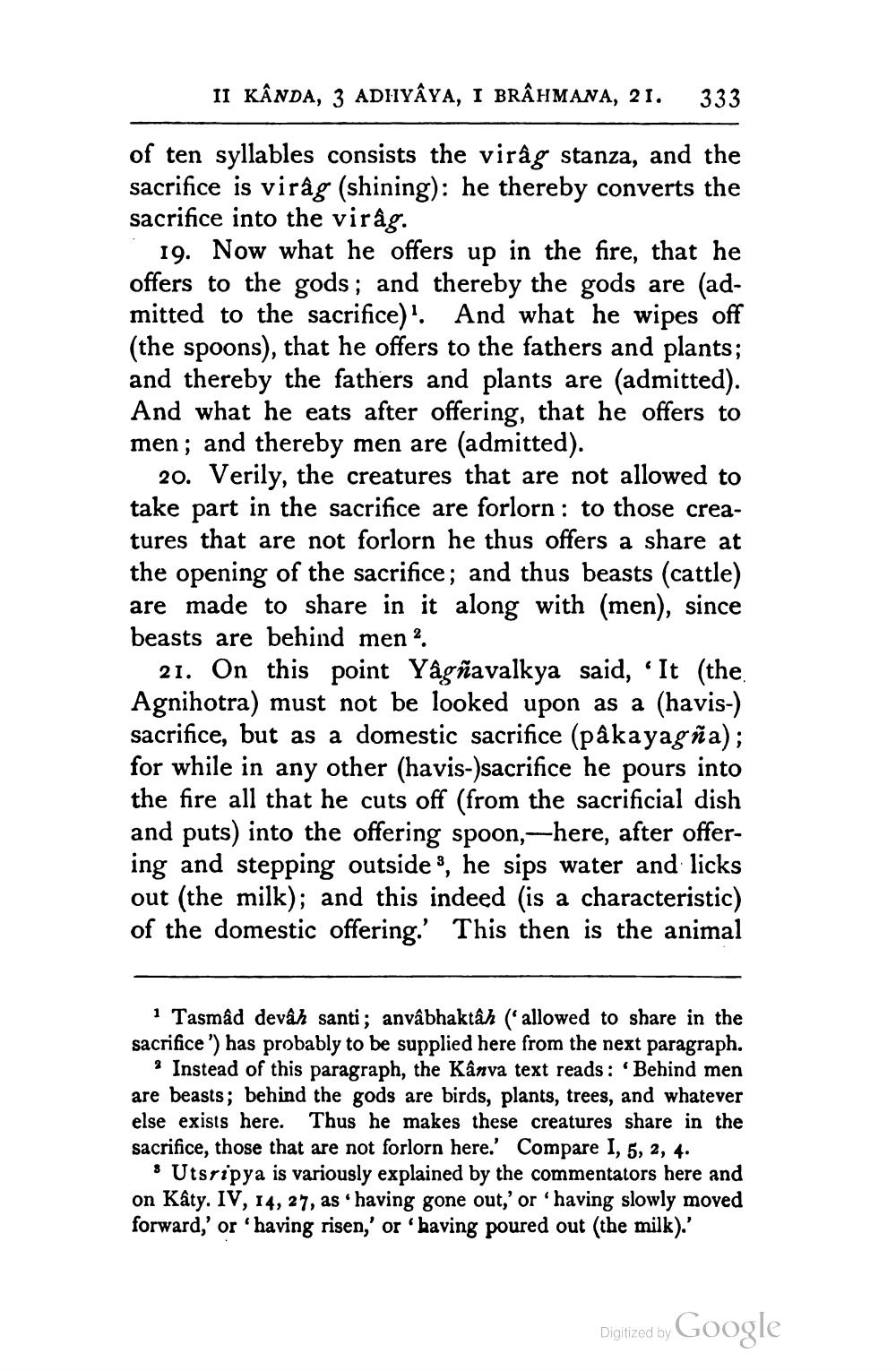________________
II KÂNDA, 3 ADIIYÂYA, I BRÂHMANA, 21.
333
of ten syllables consists the virag stanza, and the sacrifice is virag (shining): he thereby converts the sacrifice into the virag.
19. Now what he offers up in the fire, that he offers to the gods; and thereby the gods are (admitted to the sacrifice)! And what he wipes off (the spoons), that he offers to the fathers and plants; and thereby the fathers and plants are (admitted). And what he eats after offering, that he offers to men; and thereby men are (admitted).
20. Verily, the creatures that are not allowed to take part in the sacrifice are forlorn : to those creatures that are not forlorn he thus offers a share at the opening of the sacrifice; and thus beasts (cattle) are made to share in it along with (men), since beasts are behind men 2.
21. On this point Yagñavalkya said, 'It (the. Agnihotra) must not be looked upon as a (havis-) sacrifice, but as a domestic sacrifice (pâkayagña); for while in any other (havis-)sacrifice he pours into the fire all that he cuts off (from the sacrificial dish and puts) into the offering spoon,-here, after offering and stepping outside 3, he sips water and licks out (the milk); and this indeed (is a characteristic) of the domestic offering.' This then is the animal
1 Tasmad devah santi; anvâbhaktah ("allowed to share in the sacrifice') has probably to be supplied here from the next paragraph.
* Instead of this paragraph, the Kanva text reads: 'Behind men are beasts; behind the gods are birds, plants, trees, and whatever else exists here. Thus he makes these creatures share in the sacrifice, those that are not forlorn here.' Compare I, 5, 2, 4.
• Utsripya is variously explained by the commentators here and on Kâty. IV, 14, 27, as having gone out,' or 'having slowly moved forward,' or 'having risen,' or 'having poured out (the milk).'
Digitized by Google




